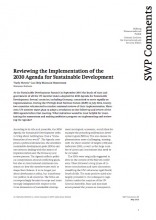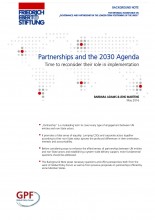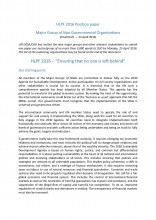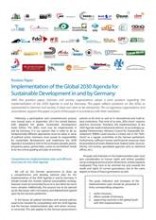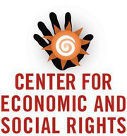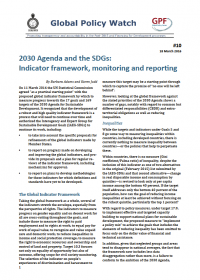
By Marianne Beisheim
At the Sustainable Development Summit in September 2015 the heads of state and government of all the UN member states adopted the 2030 Agenda for Sustainable Development. Several countries, including Germany, committed to move rapidly on implementation. During the UN High-level Political Forum (HLPF) in July 2016, twentytwo countries volunteered to conduct national reviews of their implementation. Moreover, UN member states plan to adopt a resolution on the follow-up and review of the 2030 Agenda before that [...]

